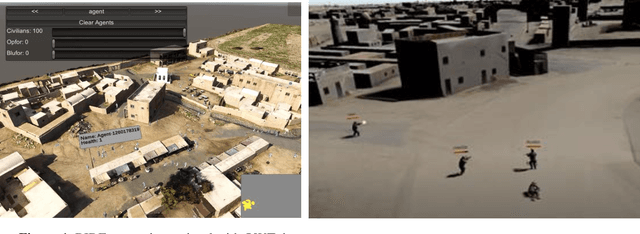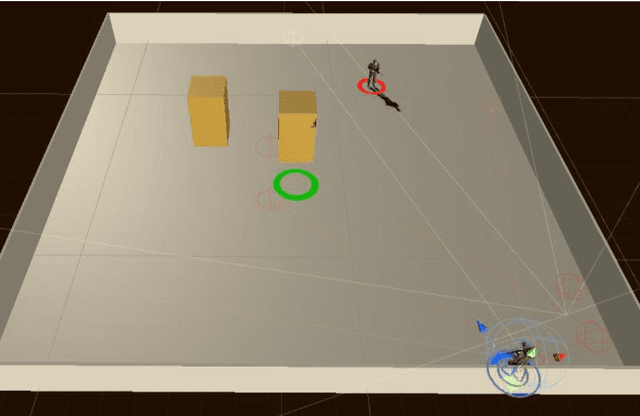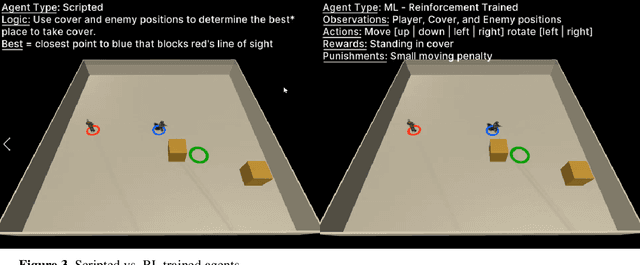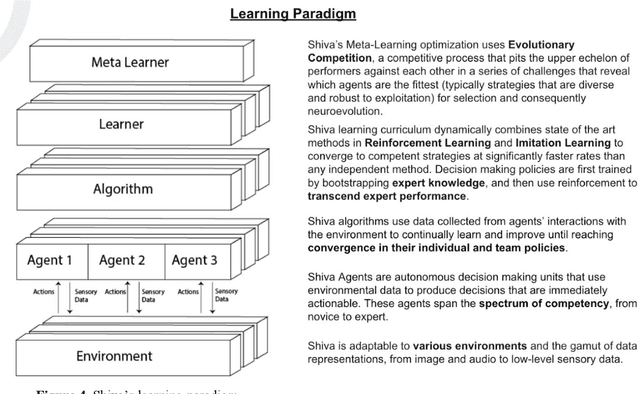Seyed Sajjadi
Controlling Synthetic Characters in Simulations: A Case for Cognitive Architectures and Sigma
Jan 06, 2021



Abstract:Simulations, along with other similar applications like virtual worlds and video games, require computational models of intelligence that generate realistic and credible behavior for the participating synthetic characters. Cognitive architectures, which are models of the fixed structure underlying intelligent behavior in both natural and artificial systems, provide a conceptually valid common basis, as evidenced by the current efforts towards a standard model of the mind, to generate human-like intelligent behavior for these synthetic characters. Sigma is a cognitive architecture and system that strives to combine what has been learned from four decades of independent work on symbolic cognitive architectures, probabilistic graphical models, and more recently neural models, under its graphical architecture hypothesis. Sigma leverages an extended form of factor graphs towards a uniform grand unification of not only traditional cognitive capabilities but also key non-cognitive aspects, creating unique opportunities for the construction of new kinds of cognitive models that possess a Theory-of-Mind and that are perceptual, autonomous, interactive, affective, and adaptive. In this paper, we will introduce Sigma along with its diverse capabilities and then use three distinct proof-of-concept Sigma models to highlight combinations of these capabilities: (1) Distributional reinforcement learning models in; (2) A pair of adaptive and interactive agent models that demonstrate rule-based, probabilistic, and social reasoning; and (3) A knowledge-free exploration model in which an agent leverages only architectural appraisal variables, namely attention and curiosity, to locate an item while building up a map in a Unity environment.
Adaptive Synthetic Characters for Military Training
Jan 06, 2021



Abstract:Behaviors of the synthetic characters in current military simulations are limited since they are generally generated by rule-based and reactive computational models with minimal intelligence. Such computational models cannot adapt to reflect the experience of the characters, resulting in brittle intelligence for even the most effective behavior models devised via costly and labor-intensive processes. Observation-based behavior model adaptation that leverages machine learning and the experience of synthetic entities in combination with appropriate prior knowledge can address the issues in the existing computational behavior models to create a better training experience in military training simulations. In this paper, we introduce a framework that aims to create autonomous synthetic characters that can perform coherent sequences of believable behavior while being aware of human trainees and their needs within a training simulation. This framework brings together three mutually complementary components. The first component is a Unity-based simulation environment - Rapid Integration and Development Environment (RIDE) - supporting One World Terrain (OWT) models and capable of running and supporting machine learning experiments. The second is Shiva, a novel multi-agent reinforcement and imitation learning framework that can interface with a variety of simulation environments, and that can additionally utilize a variety of learning algorithms. The final component is the Sigma Cognitive Architecture that will augment the behavior models with symbolic and probabilistic reasoning capabilities. We have successfully created proof-of-concept behavior models leveraging this framework on realistic terrain as an essential step towards bringing machine learning into military simulations.
Finding Bottlenecks: Predicting Student Attrition with Unsupervised Classifier
May 07, 2017



Abstract:With pressure to increase graduation rates and reduce time to degree in higher education, it is important to identify at-risk students early. Automated early warning systems are therefore highly desirable. In this paper, we use unsupervised clustering techniques to predict the graduation status of declared majors in five departments at California State University Northridge (CSUN), based on a minimal number of lower division courses in each major. In addition, we use the detected clusters to identify hidden bottleneck courses.
 Add to Chrome
Add to Chrome Add to Firefox
Add to Firefox Add to Edge
Add to Edge